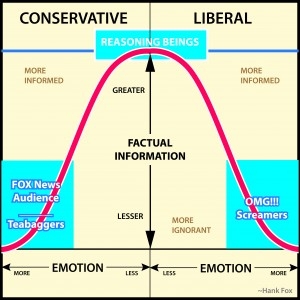

To achieve these goals, the liberals maintained that a decentralized state was fundamental, reduced to its minimum expression, to leave economic affairs to the free market.


In this context, the liberal sectors, heirs of the French culture born in the ideals of the Revolution of 1789 (“Liberty, equality, fraternity”), proposed the construction of a republican bourgeois society, which would move away from the economic and social model of colonial times and allowed new social values, such as freedom of worship or freedom of expression. This distinction was important in the young Latin American nations, who now had to decide their own destiny., after having achieved independence from Spain. The terms “liberal” and “conservative” began to be used in the 19th century. See also Freedom of the Press - Concept, importance and threats Origin of liberals and conservatives Therefore, when using them, it is always advisable to handle the specific context in which they make sense. Therefore, the epithets of “liberal” or “conservative” do not usually define more than general, broad political tendencies, like someone pointing to the cardinal points.

Liberal conservatism, which also promotes liberal faith in the free market, but also demands a strong state to enforce traditional values.Conservative liberalism, which embraces the economic proposals of liberalism, but not the social ones.A person may or may not be a Christian, but he cannot be more Christian or less Christian than another On the other hand, a person can be liberal in some matters and conservative in others, so much so that today there are positions that we can call “intermediate”: Therefore, in broad terms, those who oppose change in any of its facets can be branded as conservatives.Ĭontrary to what is often understood, these they are not absolute and total positions, like a religious creed. Instead, conservatism is the political position that demands the greatest possible respect for traditions, especially to traditional values (family and religious), in frank opposition to progressivism, that is, to the idea that the values of society should change over time.


 0 kommentar(er)
0 kommentar(er)
